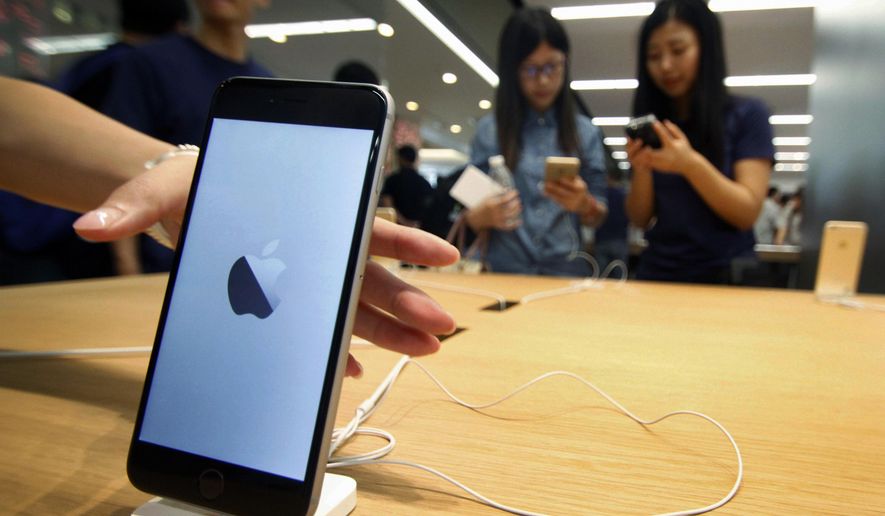Citing a request from Chinese authorities, Apple this week said it agreed to censor two iPhone apps maintained by The New York Times.
Apple removed both the English- and Chinese-language editions of the New York Times’ iOS app from its mobile device store in China late last month after being told it was in violation of local regulations, Apple spokesman Fred Sainz told the newspaper Wednesday.
The removal is the latest hurdle for more than 100 million widely isolated Apple iPhone users whose quest for outside knowledge has been stymied by China’s growing Great Firewall.
Chinese authorities began blocking access to The Times’ website in 2012 shortly after the paper’s reporters began exposing the finances of then-Prime Minister Wen Jiabao, the newspaper said Wednesday. Until recently, however, Chinese iPhone users have been able to circumvent those restrictions in part by obtaining Times content through the paper’s iOS apps.
Apple purged both versions from its app store in China on Dec. 23, about the same time its journalists were investigating new allegations involving the current Chinese government, The Times reported.
“The request by the Chinese authorities to remove our apps is part of their wider attempt to prevent readers in China from accessing independent news coverage by The New York Times of that country,” Times spokeswoman Eileen Murphy told Reuters.
While Apple would not disclose the specific violation cited by Chinese authorities, The Times said the request was likely made under regulations released in June 2016 that says apps cannot “engage in activities prohibited by laws and regulations such as endangering national security, disrupting social order and violating the legitimate rights and interests of others.”
Chinese law also prohibits the publication of “harmful information” online, and the Cyberspace Administration of China, the nation’s regulator, claims that apps cannot publish “prohibited” information, The Times reported.
“The development of the internet in China must respect China’s laws and regulations, in principle,” foreign ministry spokesman Geng Shuang told Reuters upon being asked about the apps.
Times readers in China who had the app installed prior to the restriction being implemented late last month shouldn’t be affected, the newspaper reported. It wasn’t immediately clear how many times either of the affected apps had been installed prior to Dec. 23.
More than 131 million iPhones were being actively used throughout China at the end of 2015, outpacing the number of devices in the U.S. by roughly 21 million, according to data released last year by Consumer Intelligence Research Partners.
In spite of being one of the world’s largest iPhone markets, however, few in China can easily use their devices to access uncensored news. Currently the nation is ranked 176 out of 180 countries with respect to press freedom, according to Reporters Without Borders, beating out only Syria, Turkmenistan, North Korea and Eritrea.
The number of Chinese residents connected to the internet exceeded more than half of the country’s population for the first time ever in 2015 when roughly 688 million residents reported having online access, the state-backed China Internet Network Information Center (CNNIC) said last year. About 90.1 percent of that group used mobile devices, including iPhones, at least some of the time to get online, according to that report.
• Andrew Blake can be reached at ablake@washingtontimes.com.




Please read our comment policy before commenting.